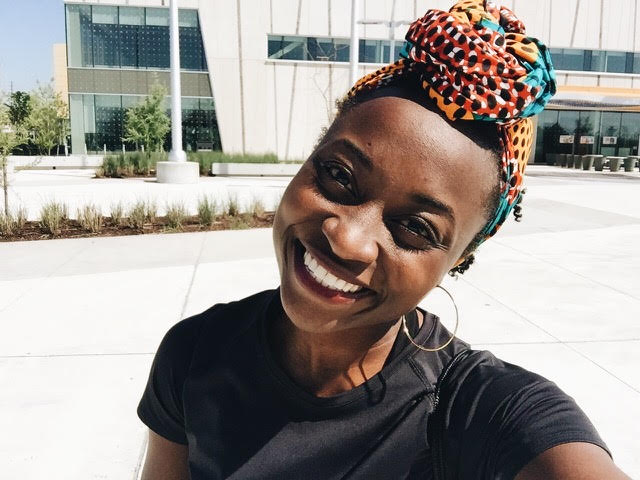Shawna is a full-time student on the department’s MSc in Applied Linguistics and Second Language Acquisition programme and previously undertook her BA degree in Psycholinguistics at the University of Toronto.
What degree did you apply for and why was it important to you to study this?
What caught my eye at first about this programme was the fact that it was an MSc, as normally degrees in the field tend to be MA’s. This was particularly important to me as an aspiring academic in the field hoping not only to gain theoretical and pedagogical knowledge, but also to develop strong skills in empirical research. The fact that Oxford was offering an MSc in Applied Linguistics really spoke to the emphasis placed on the development of practical skills in empirical research.
What do you plan to do once you’ve completed your degree?
After taking a gap year to settle back into Toronto, I hope to begin my PhD. My goal is to become a professor in Applied Linguistics.
What do you most value about the teaching at the department?
The teaching staff are very passionate about the subject matter and they genuinely care about your success and that comes through in the lectures, which are so thoroughly prepared! Perhaps what I have grown to appreciate most however, is the fact that the teaching staff, more than anything else, teach you to think for yourself, and think critically! At first that was difficult, but it is such an invaluable skill that I have gained from studying here in the department.
Why do you think it’s important to study education?
Coming from a Linguistics background, it was quite a new experience to be studying in an education department. However, studying education added the must needed factor to my studies as a linguist/research- “So what?”. After reading articles and exploring theories of language acquisition, my supervisor always asked “so what!?”….and I believe that it is crux of it, that is why it is important to study education, it keeps you focused on why you do what you do, on who your research will help, and in a sense keeps you accountable to these groups in providing sound empirical research that will impact educational policy and pedagogy. Studying education, I find, makes sound, effective, evidence-based change possible!
What’s the community like at the department?
The department truly represents a tight-knit community! It offers many seminars and lunchtime talks open to the entire department, regardless of academic focus/stream and this brings everyone together to share ideas. I find that this provided an opportunity to learn from so many individuals at different stages in their academic careers. When I started Oxford, everything felt so big, intellectual and intimidating! But getting involved in the department and participating in research groups, attending seminars and talks, and of course, Wednesday morning department (don’t miss out on the tea and biscuits!) made things more accessible and less intimidating for me, and taught me that I also had ideas and knowledge worth sharing!
I am truly so thankful to have been able to a member of the education community!
How do you get involved in other research activities within the department and what are they?
Many professors belong to research groups or have research projects going on and often, if you simply ask them, they are willing to have you attend the research group or point you in the direction that is best for you in terms of research opportunities.
I had the privilege to be a member of the REAL group convened by my supervisor. Through the group, I had the opportunity to attend sessions where doctoral students shared their research, as well as attend sessions in which we reviewed studies as a team.
Opportunities are there, but I find you have to sometimes put on a brave face and just ask!
What’s your favourite thing about studying at the department?
The department is filled with so many world class scholars (students included!) in so many aspects of education that you are always learning something new and having insightful conversations with people from all of the world, with different experiences, all with the goal to create better educational experiences for students everywhere!
Do you have a mentor in the department, and if so how has this helped you?
Yes. My supervisor has been my mentor throughout the programme and this has been one of the biggest helps in getting through my degree. From academic support to a simple “its going to be fine”, my supervisor has encouraged and guided me throughout the process.
What advice would you give to new postgraduate students on how they can get involved in the department community?
Yes, you will have a lot on your plate and things can get hectic, but do make the time to attend as many seminars or lunchtime talks as you can! They not only get you connected with the community but provide the opportunity for you to ask questions and get insight from others that will likely help on the dissertation and in your studies generally!
What further opportunities have you gained so far through your degree?
I have attended conferences, presented my to doctoral candidates, I have also had the opportunity to write for an academic journal in my field as a member of the REAL group.

The Department is filled with so many world class scholars (students included!) in so many aspects of education that you are always learning something new and having insightful conversations with people from all of the world, with different experiences, all with the goal to create better educational experiences for students everywhere!





